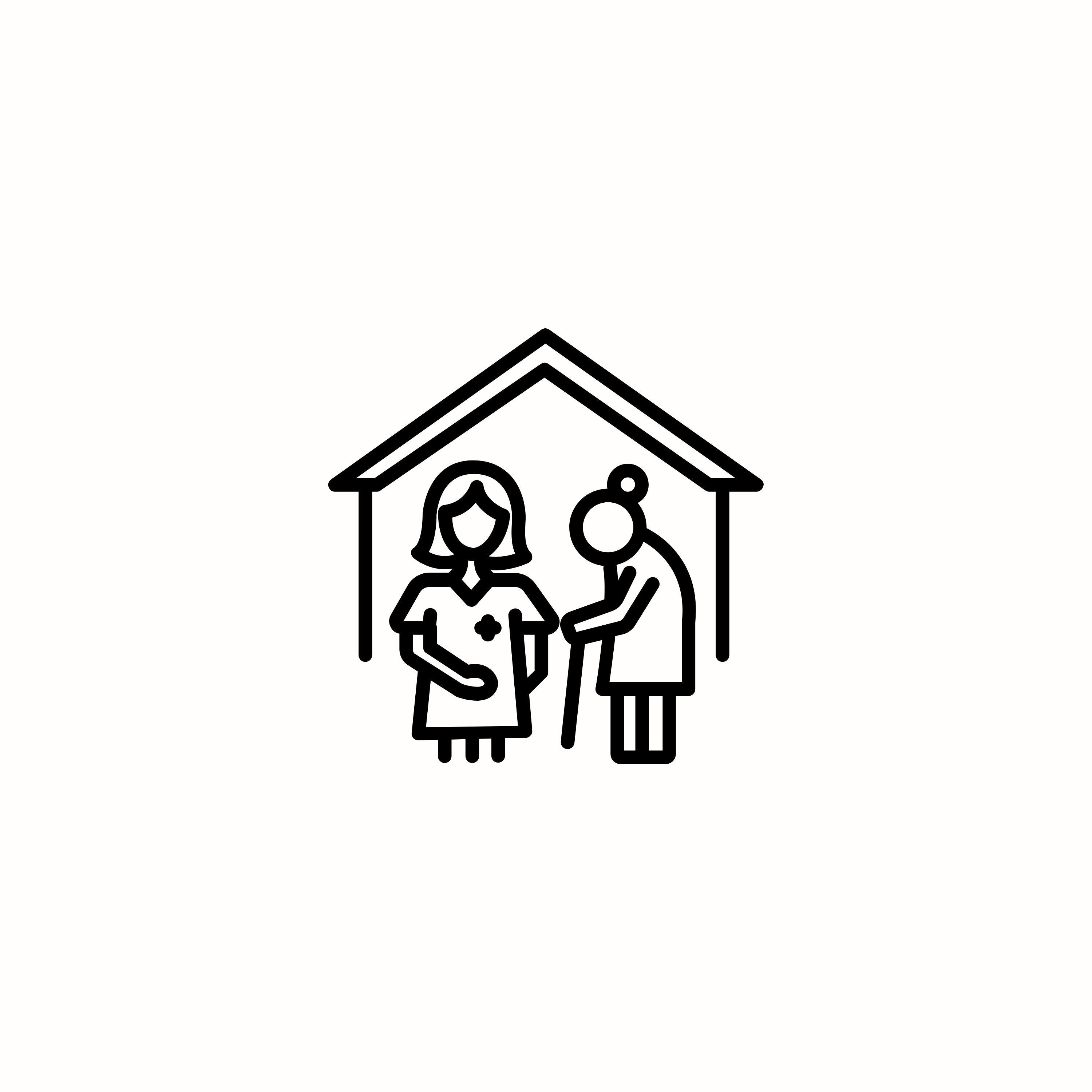In the early morning darkness of May 22nd, while most Americans slept, the House of Representatives passed a bill that could reshape millions of lives. They called it the "One Big Beautiful Bill Act." It passed by a single vote: 215 to 214. One Republican reportedly missed the vote because he had fallen asleep during the all-night session.
This sweeping legislation represents one of the most ambitious attempts to transform American society through a single piece of law in modern history. It combines massive tax cuts with severe reductions to social safety nets, touches immigration enforcement and regulatory rollbacks, and affects nearly every aspect of American life. Millions of vulnerable Americans now hang in the balance as it moves to the Senate.
What Just Happened
After marathon sessions that kept lawmakers debating through two consecutive nights, House Republicans pushed through more than 1,000 pages of legislation. This reconciliation bill would:
Make permanent the 2017 Trump tax cuts and add new tax breaks that primarily benefit the wealthy
Cut nearly $700 billion from Medicaid over the next decade
Impose strict work requirements of 80 hours per month for Medicaid recipients
Raise the debt ceiling by $4 trillion while adding $3.8 trillion to the national debt
Roll back clean energy incentives
Restrict states' ability to regulate artificial intelligence
Fund massive border security measures
The vote was so close it came down to two Republicans voting against their party, one voting present (neither supporting nor opposing), and one Republican falling asleep from exhaustion after two consecutive all-night sessions.
Why This Process Breaks Democratic Norms
Several aspects of this legislative process represent significant departures from democratic traditions.
The naming itself is problematic. Naming legislation after a president's campaign slogan transforms policymaking into personal branding. The bill even includes provisions for "Trump accounts" (originally called "MAGA accounts").
The scale and scope raise serious concerns. Attempting to fundamentally restructure multiple major government programs through a single reconciliation bill bypasses regular committee processes and limits debate on decisions that will affect millions. The reconciliation process was designed for narrow budgetary matters, not sweeping social policy changes.
The process undermines deliberative democracy. Forcing exhausted legislators to vote on more than 1,000 pages of life-altering legislation after consecutive all-night sessions is not how democracy should work. By cramming healthcare, immigration, energy, and AI regulation into one package, the bill undermines the committee system, regular order, and the deliberative process that allows for proper scrutiny of complex legislation.
The Math Tells a Stark Story
According to the Congressional Budget Office, this bill would reduce resources for the bottom 10% of Americans by 4% while increasing resources for the top 10% by 2%.
Four percent might sound small, but for families already choosing between medicine and groceries, that means real hunger, untreated illness, and homelessness. For the wealthiest Americans, that 2% gain adds to already substantial wealth.
The Human Cost
An estimated 8.6 million Americans could lose healthcare coverage—that equals the entire population of Virginia. Millions more could lose food assistance. These cuts hit real communities in devastating ways.
Rural Healthcare Crisis
Rural hospitals already operate on razor-thin margins, with many depending on Medicaid for 40 to 60% of their revenue. Without that funding, more will close their doors. The United States has already lost 136 rural hospitals since 2010. This bill would accelerate those closures, leaving entire counties without emergency rooms.
Maternity Care Emergency
Half of rural counties already lack obstetric services. When Medicaid cuts force more rural hospitals to close maternity wards, pregnant women must drive hours while in labor. Maternal mortality rates, already unacceptably high, will climb. Babies will die who did not have to die.
Nursing Home Impact
Medicaid pays for 60% of all nursing home residents nationally. When that funding shrinks, facilities cut staff, reduce services, and close wings. Elderly Americans who worked their entire lives and paid into the system find themselves without care in their final years. Their adult children face impossible choices between careers and caregiving.
Why This Matters for Democracy
This legislation represents a profound test of American values and institutions. At stake:
Healthcare access for millions of Americans, particularly those with disabilities, chronic conditions, or irregular employment
Food security for families already struggling with inflation
Economic inequality that would dramatically worsen by transferring resources from the poor to the wealthy
Democratic norms around how we craft and pass major legislation
The social contract between government and its most vulnerable citizens
The Senate's response will determine whether these changes become law or whether the upper chamber will serve as a check on this radical restructuring of American society.
Lessons from On Tyranny
These events connect directly to Timothy Snyder's essential lessons:
Lesson 1: Do not obey in advance. House Republicans who initially opposed this bill but ultimately fell in line demonstrate anticipatory obedience. Despite knowing the bill would harm their constituents, all but two Republicans voted yes. One voted present—a form of passive compliance. The last-minute scramble to accommodate every faction shows how the party apparatus demanded loyalty over conscience.
Lesson 2: Defend institutions. The reconciliation process was designed for narrow budgetary matters. Now it stretches beyond recognition to encompass sweeping social policy changes. By cramming healthcare, immigration, energy, and AI regulation into one package, the bill undermines the committee system, regular order, and the deliberative process that allows for proper scrutiny of complex legislation.
Lesson 4: Take responsibility for the face of the world. Branding government programs with political slogans like "Trump accounts" transforms civic institutions into extensions of personality cult. When safety net programs face cuts while tax breaks expand for the wealthy, American society reshapes itself to become crueler to the vulnerable and kinder to the powerful.
Lesson 6: Be wary of paramilitaries. While not directly about armed groups, the bill's massive funding for immigration enforcement creates concern. Combined with rhetoric about "invasion" and "occupation," it creates infrastructure for increasingly militarized domestic enforcement. The 10,000 new ICE officers and expanded detention facilities represent a significant expansion of the federal government's coercive capacity.
Lesson 10: Believe in Truth. The bill's proponents claim it will boost economic growth and help working families, but the CBO's analysis tells a different story. The poorest Americans will lose resources while the wealthy gain. The Orwellian naming—calling legislation that harms millions "beautiful"—represents an assault on truth itself. When Speaker Johnson claims this is "generational, truly nation-shaping legislation," questions arise: What kind of nation is being shaped, and for whom?
What You Can Do Right Now
These lessons aren't abstract—they're a roadmap for moments like this. They help us see the bigger pattern behind what might otherwise look like isolated decisions. Now that we see it, we have a responsibility to respond.
1. Contact Your Senators Immediately
Especially if you live in a Republican-held state, the Senate is where this bill can be stopped or significantly changed. With only a three-vote margin, Republican senators in purple states are key pressure points.
Call their DC and local offices daily. The Capitol switchboard number is (202) 224-3121. Focus on personal stories—how will losing Medicaid affect you or your family? If you live in states with potentially persuadable GOP senators like Maine, Alaska, or North Carolina, your voice carries extra weight.
Topics to Cover:
Start with: "I'm a constituent calling about the One Big Beautiful Bill"
Share YOUR story: How will losing Medicaid affect you/your family?
Key points to mention:
8.6 million Americans will lose healthcare
Rural hospitals will close
Adds $3.8 trillion to the debt
CBO says it hurts the poorest Americans while helping the wealthy
2. Support and Amplify Affected Communities' Voices
Several organizations stand on the front lines of this fight:
Center on Budget and Policy Priorities provides analysis that cuts through political spin
Families USA advocates for healthcare, bringing Medicaid recipient stories directly to Congress
Feeding America runs the food bank network that will face a tsunami of new families
National Disability Rights Network challenges work requirements that ignore the reality of disability
These groups have relationships with moderate senators and bring human faces to policy debates. You can strengthen their work by donating to rapid response funds, sharing their reports and real stories on social media, and volunteering to help gather testimonies from affected people in your community.
3. Make This Visible in Your Community
Attend senator town halls or "empty chair" events if they refuse to show
Write letters to editors in local papers (senators read these)
Work with faith communities—many churches, synagogues, and mosques have social justice committees that can mobilize
Organize visibility actions at hospitals that serve Medicaid patients
Local visibility matters because senators care more about in-state pressure than national protests.
Stay Loud, Stay Kind!
Check out our merch because democracy needs a voice— and kindness needs a champion.
Our Bigger Than Me shirt isn’t just a statement. It’s soft, comfy, and built for showing up — whether you’re protesting, hanging out, or walking the dog on a warm day.
Every shirt helps fuel strong coffee, stronger Wi-Fi, and a movement that knows staying loud and staying kind is how we win.
Suit up. Show up. Stay Loud. Stay Kind.
Sources
Congressional Documents
H.R.1 - 119th Congress (2025-2026): One Big Beautiful Bill Act. Congress.gov. May 20, 2025. https://www.congress.gov/bill/119th-congress/house-bill/1/text
Congressional Budget Office. Cost Estimate for H.R.1, One Big Beautiful Bill Act. May 2025.
Official Statements
The White House. "WHAT THEY ARE SAYING: One, Big, Beautiful Bill Clears House." May 22, 2025. https://www.whitehouse.gov/articles/2025/05/what-they-are-saying-one-big-beautiful-bill-clears-house/
The White House. "WHAT THEY ARE SAYING: Pass the One, Big, Beautiful Bill." May 19, 2025. https://www.whitehouse.gov/articles/2025/05/what-they-are-saying-pass-the-one-big-beautiful-bill/
House Ways and Means Committee. "PASSED: The One, Big, Beautiful Bill Moves One Step Closer to President Trump's Desk." May 22, 2025. https://waysandmeans.house.gov/2025/05/22/passed-the-one-big-beautiful-bill-moves-one-step-closer-to-president-trumps-desk/
News Coverage
Reuters. "US House narrowly passes Trump's sweeping tax-cut bill, sends on to Senate." May 22, 2025. https://www.reuters.com/world/us/us-house-republicans-set-pre-dawn-votes-get-trump-tax-bill-over-finish-line-2025-05-22/
ABC News. "Senate likely to change House-passed megabill advancing Trump's agenda." May 22, 2025. https://abcnews.go.com/Politics/senate-change-house-passed-megabill-advancing-trumps-agenda/story?id=122072381
PBS NewsHour. "House Republicans narrowly passed Trump's 'big, beautiful' bill. Here's what's in it." May 22, 2025. https://www.pbs.org/newshour/politics/house-republicans-narrowly-passed-trumps-big-beautiful-bill-heres-what-in-it
Time Magazine. "House Passes Trump's 'Big, Beautiful Bill,' Heads to Senate." May 22, 2025. https://time.com/7287722/trump-big-beautiful-bill-house-rules-committee-floor-vote-republicans/
Yahoo Finance. "The House passed Trump's 'big, beautiful bill.' Here's how it affects taxpayers and businesses." May 22, 2025. https://finance.yahoo.com/news/the-house-passed-trumps-big-beautiful-bill-heres-how-it-affects-taxpayers-and-businesses-110041500.html
Healthcare Impact Statistics
Rural Hospital Closures
Chartis Center for Rural Health. "Rural Hospital Closures." Data shows 136 rural hospitals closed between 2010-2024. (Referenced figure extrapolated to current context)
Medicaid Coverage
Kaiser Family Foundation. "Medicaid's Role in Nursing Home Care." (Referenced for 60% figure)
Congressional Budget Office. Analysis showing 8.6 million Americans could lose coverage under proposed Medicaid changes.













